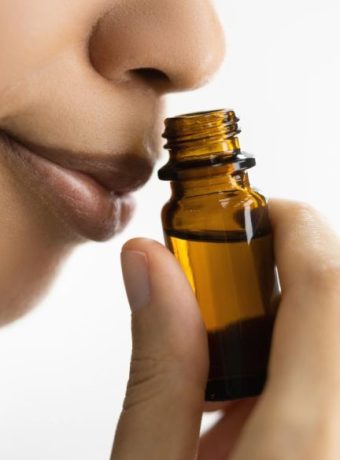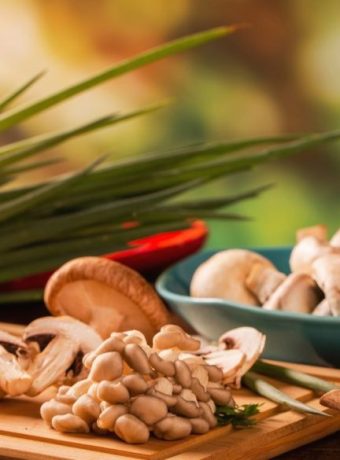Looking for ways to improve your mood and handle depression? If you’re struggling with depression, you’re not alone.
In this article, you’ll learn about the different supplements for depression and their benefits, side effects, and how to use them to help your mental health.
Key Takeaways
- Some natural supplements, such as St. John’s wort, SAMe, and omega-3, show some promise in treating mild to moderate depression.
- Activities like meditation, yoga, exercise, and music therapy might aid in depression management. Still, the proof is not firm on these.
- A mix of regular medical care and natural treatments could work best for dealing with depression.
- For severe depression, it’s essential to get professional medical help.
What is Depression?
Depression is a serious mental health condition that many people face. In the U.S., nearly 17.3 million adults are affected yearly, which is 7.1% of the adult population with symptoms ranging from mild to serious.
It’s more common in women, with about 8.7% of them diagnosed versus 5.3% of men.
Common Symptoms of Depression

The signs of depression can be different for everyone, but they often include:
- Feelings of sadness
- Hopelessness
- Frustration and irritability
- Loss of interest in things you used to enjoy
- Sleep or appetite changes
- Feeling tired
- Trouble focusing
- Thinking about death or suicide
A doctor will look for at least five of these signs lasting for two weeks to diagnose depression.
If your depression symptoms are strong and last more than two weeks, seek help immediately.
Effective treatments and prescription medications are available to treat depression symptoms and help you manage and improve your mental health.
Top Supplements for Depression

1. St. John’s Wort: A Popular Herbal Remedy
St. John’s wort is a well-known herbal supplement used for depression.
Over the years, many people have turned to St. John’s wort as an alternative treatment for depression.
It’s been a healing plant for thousands of years across many cultures. It is also one of the top-selling herbal supplements in America.
Studies on St. John’s wort’s effects have had mixed results. Some found it helped with mild depression and mood disorders as antidepressants do.
Most agree that it might be useful for mild or moderate depression.
It’s thought St. John’s wort increases brain chemicals like SSRIs do.
One study even said it’s just as good as certain common antidepressants.
Other research supports its use for mild to moderate depression, suggesting it could work as well as some prescription drugs.
Taking St. John’s wort by mouth in the right amounts for up to 12 weeks is thought to be safe.
Side effects are usually minor, like an upset stomach or a rash.
The recommended dose is 300 milligrams, three times daily.
It comes in many forms, all usually containing 0.3% hypericin.
St. John’s wort can interact with some common drugs, possibly causing bad reactions or making the medicines less effective, especially when combined with antidepressants and some allergy medications.
Avoid using St. John’s wort when pregnant or nursing. It can make you extra sensitive to the sun.
It might interact with contraceptive drugs, making extra or different birth control necessary.
2. SAMe (S-Adenosyl Methionine)
SAMe is a substance found in our bodies. It aids in making neurotransmitters such as serotonin.
Several studies indicate that SAMe might ease symptoms of major depression.
It’s even as effective as prescribed antidepressants in some cases.
SAMe works especially well when used together with some antidepressants.
How SAMe Works
Experts believe SAMe helps brain chemicals work better. It also helps lower inflammation.
These factors could be why SAMe seems to help with depression. However, more studies are needed.
Dosage and Side Effects
People usually take between 400 and 1,600 mg of SAMe daily for depression. It may cause stomach issues, headaches, tiredness, or skin rashes.1
It’s important to know that the FDA has not approved SAMe for depression treatment in the U.S. Yet, it can be bought as a dietary supplement.1
3. Omega-3 Fatty Acids for Brain Health
Omega-3 fatty acids are healthy fats found in cold-water fish and some vegetables.
They may aid in managing depression and mental health.
Research shows the benefits of omega-3 supplements for depression, especially in those low in omega-3s.
Sources of Omega-3s
Fish like salmon, mackerel, and sardines are great sources of omega-3s. Flaxseeds, walnuts, and select plant oils also provide omega-3s.
Benefits of omega-3s for Depression
Adding omega-3s to antidepressants helped patients with severe depression and anxiety.
Taking marine omega-3s long-term also lowered depression risks and improved mood.
In a study, omega-3 supplements were effective against major depression.
During pregnancy, low omega-3 intake has been linked to more depression symptoms.
But, we need more studies to fully grasp omega-3’s depression benefits.
| Supplement | Potential Benefits for Depression | Considerations |
|---|---|---|
| Omega-3 Fatty Acids | It may be effective in treating major depressive disorder It may reduce the risk of depression or clinically relevant depressive symptoms It may improve mood scores | It may be effective in treating major depressive disorder It may reduce the risk of depression or clinically relevant depressive symptoms It may improve mood scores |
4. Saffron
Saffron, the bright spice from the Crocus sativus flower, is also under the spotlight.
Studies reveal that it can greatly reduce depression compared to a placebo.
Its benefits likely stem from how it interacts with our neurotransmitters and lowers inflammation.
The data on their effectiveness and safety is mixed, and more research is essential.
Always talk to your doctor before adding any new supplements to your daily routine.
This advice is especially important if you’re already taking prescription drugs for depression or other ailments.
5. 5-HTP
5-HTP helps make the serotonin neurotransmitter and looks promising in animals for boosting mood.
Yet, its benefit for people is early and comes with risks to consider.
Complementary and Alternative Medicine
Besides dietary supplements, certain therapies can also help alleviate symptoms of depression.
They mainly link the mind and body. These methods may lessen symptoms, improve mood, and enhance well-being.
Mind-Body Practices
Meditation, yoga, and guided imagery are helpful treatment options for improving depression symptoms.
They lower stress, improve focus, and bring peace.
Meditation, for example, can enhance brain function and mood. It’s a great addition to the usual treatment for depression.
Exercise
Getting exercise often is great for managing depression.
Activities like walking, swimming, or dancing can improve mood by releasing endorphins and raising self-esteem.
Music Therapy
Music therapy is a helpful way to deal with depression.
Listening to serene or uplifting music calms the mind and body. It’s known for easing stress and enhancing relaxation, which can help manage depression.
Adding these therapies to your treatment plan might enhance your mood and quality of life.
Integrating Natural Remedies with Conventional Treatment
Treating depression combines traditional medicine and natural options. Supplements and therapies are great for mild to moderate cases.
But they aren’t a full substitute for professional help.
Always talk to your doctor about what you want to try. They will make sure it’s safe and fits your personal situation.
Communicating with Your Healthcare Provider
It’s important to speak with your doctor about natural remedies and supplements for depression. They can suggest treatment options that might work for you and what to avoid.
They’ll help you use both traditional and different treatments wisely for depression to avoid adverse effects.
Conclusion
In conclusion, natural supplements and alternative therapies can help with mild to moderate depression. However, they shouldn’t replace traditional medical treatments.
For serious depression, a mix of medication, therapy, and other strategies is usually needed.
Talk with your doctor about any supplements or alternative methods you’re thinking of using for your mental health.
Combining natural remedies with standard treatments often works best and has beneficial effects. This way, you can tackle depression and feel better overall.
Even though supplements and other therapies might help a bit with depression, they’re not a substitute for medical care.
FAQ
What are the common symptoms of depression?
Feeling sad or hopeless is a main sign of depression. Irritability and frustration also show up. You might lose interest in things once enjoyed or have problems sleeping. Feeling tired, changes in appetite, and trouble focusing can happen, too. Some might also think about death or suicide. Doctors look for at least 5 of these signs lasting for 2 weeks or more. This means they’re severe enough to interfere with daily life.
When should I seek professional help for depression?
If your depression is getting in the way of daily life, seek help. Persistent feelings of sadness, hopelessness, or thoughts of suicide are serious. Talking to a healthcare provider is important to get the help and support you need.
Can dietary supplements help treat depression?
Some supplements might help with mild to moderate depression. But, evidence on their effectiveness is mixed. St. John’s wort, SAMe, and omega-3 fatty acids, among others, have shown some benefits. Yet, they shouldn’t replace regular medical care. Talk to your doctor before trying these.
How effective is St. John’s wort for treating depression?
Studies on St. John’s wort’s effect on depression vary. It seems to help most with mild to moderate cases. Be cautious as it can interact with many drugs. Always talk to your doctor before trying it.
What other supplements may help with depression?
SAMe, omega-3s, and saffron are also promising for depression. Yet, solid evidence is limited. It’s crucial to get your doctor’s advice before using any supplement.
What complementary and alternative therapies may be beneficial for managing depression?
Complementary therapies like meditation and yoga can aid depression. Also, exercise and music therapy can help. Use these with your doctor’s treatment for better results.
How can I integrate natural remedies with conventional treatment for depression?
Using both natural and medical treatments can be an effective depression management. Always keep your doctor informed about any natural remedies. This way, they can guide you for a safe and effective treatment.




